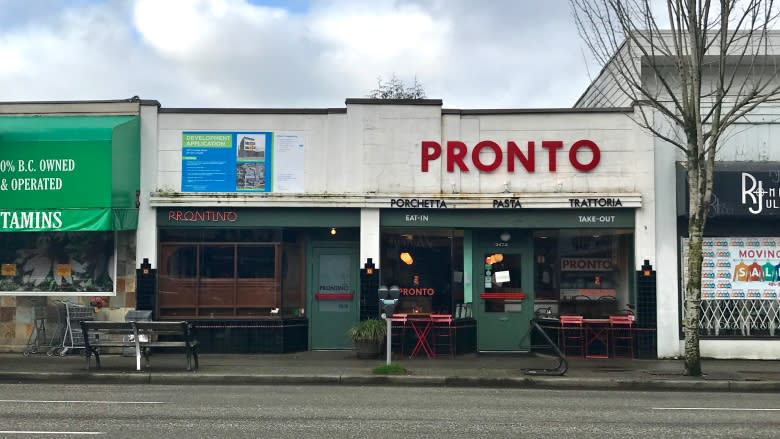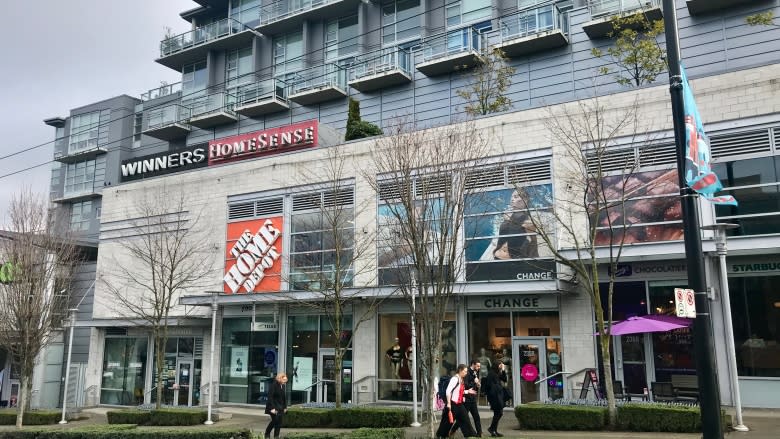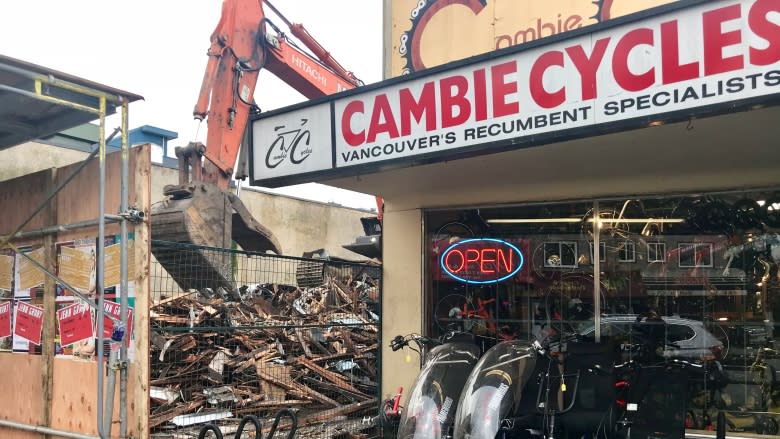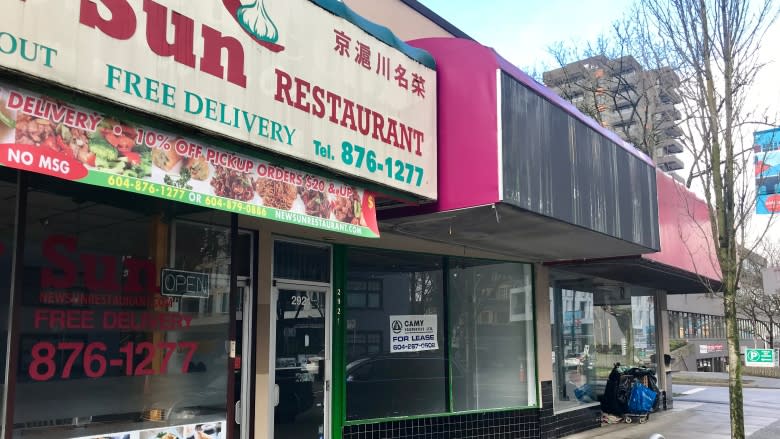9 years after Canada Line debacle, Cambie businesses still in limbo
Angela Maida never thought it would end this way.
The owner of Pronto Caffe opened her business on Cambie Street seven years ago. She envisioned passing on the quaint Italian dinner and cocktail bar to one of her children.
Instead, she has been evicted to make way for a new owner who is tearing down the one-storey, art deco building to build a dentist office with residences above.
"It's crushing, actually. It's crushing," Maida said, sitting on a bench near the window of Prontino — the adjoining bar to her Caffe.
Like Pronto, many of the small businesses in Cambie Village are housed in one-storey buildings prime for redevelopment.
The entrepreneurs who run businesses inside these buildings say they're at the mercy of landlords who stand to make millions selling their assets in Vancouver's overheated real estate market.
Urban planners and the local business association say the community risks losing its well-loved, independent shops and restaurants for cookie-cutter big-box stores.
"These small businesses are a part of what makes living in a city like Vancouver or Victoria or wherever rewarding," said Wes Regan, a community planner who recently finished a masters in urban studies at Simon Fraser University.
"As we lose them, we lose a sense of identity, a sense of place, we lose a sense of connection."
Critics like Regan say small businesses are struggling throughout Vancouver because of high real estate prices. And they want the province and the city to enact policies and laws to protect small business
City staff are currently preparing a report on how the city can better support small businesses. A city spokesperson said it will go to council later this month.
'We did justice to this building'
Maida opened Pronto in 2011, shortly after the Canada Line was completed, avoiding the downturn most businesses in the area experienced when construction blocked traffic for months.
But soon after Maida got started, the City of Vancouver announced the Cambie corridor would be rezoned for mid-rise buildings.
Maida says she has invested about $800,000 in her business over the years. She gutted the former dry cleaners on one side and the flower shop on the other and redesigned the interior and a small back patio. She also reworked the plumbing and electricity.
Now she won't be able to recoup those costs. She has to close on March 3.
"I don't regret it. I think we did justice to this building," she said. "It deserved it."
Rania Hatz with the Cambie Village Business Improvement Association says the looming demolition of many buildings in the area makes long-term investment precarious for many Vancouver entrepreneurs.
"It's the same as right across the city. Everybody's worried that their building's going to come down," Hatz said.
'We are losing some of the smaller shops'
But business owners looking to set roots don't have many options.
Hatz says it's difficult to lease a spot anywhere in Vancouver that doesn't risk getting torn down. And most leases include a demolition clause that only give businesses three months to two years to leave if they are going to be torn down.
The Cambie Village BIA isn't against redevelopment in the area — but Hatz wants to see some protections in place.
"It's a positive impact in the long run. We're going to get great new buildings, we're going to get new residents above the shops, so it's going to be great," she said.
"But we are losing some of the smaller shops as construction happens, and we're hoping they come back."
The BIA wants the city to consider the types of developments it allows in the area.
For example, Hatz wants to see small frontages better suited to small, independent business — sometimes called "chicklet" spaces — as part of larger developments.
Regan, who researched small businesses as part of his masters thesis at SFU, says small businesses need more protection throughout the province.
"Right now businesses are being thrashed around in this current environment and they have just very little protection and very little certainty," he said.
Some solutions in other cities include a rent-to-own program in Austin, Texas, so small businesses can build equity. Regan said in New York City there has been a campaign underway for several years to create retail rental protections, similar to how renters are protected under B.C.'s Residential Tenancy Act.
He says there are significant economic benefits at stake, especially given that small shops and restaurants make up more than 90 per cent of business in B.C.
Moving to West End
As for Maida, she's not just upset about losing her business.
She's saddened to think of all the unique architecture of bygone eras the city will lose when it's replaced by Vancouver's signature concrete and glass buildings.
The building she'll be moving into at her new restaurant in the West End, Centro, has a distinct '70s feel she intends to exploit.
It also comes with a six-month demolition clause. But she's hoping this time, things will work out differently.







